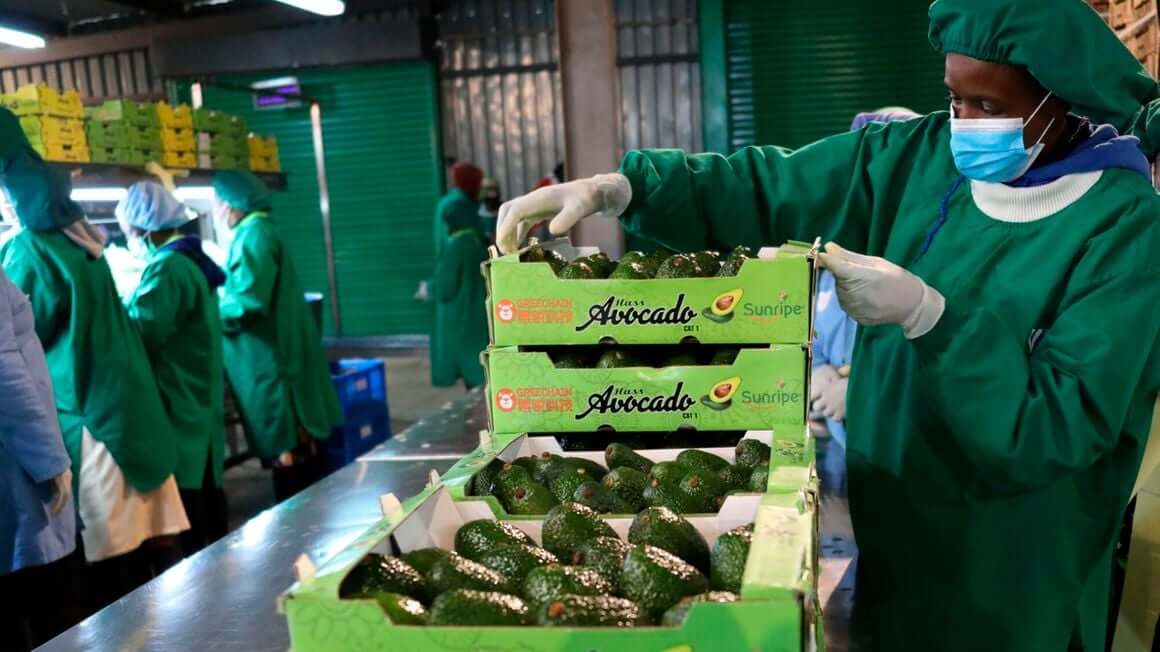
Our Projects are
Transforming African Trade
Quick Contacts
2nd Floor, Fidelity Insurance Centre Waiyaki Way, Westlands

Kenya has last week began transporting horticultural produce by sea in a move officials say will reduce the carbon footprint and improve earnings.
This follows a pact with the European Union, one of Kenya’s major export destinations, to transport fresh produce via sea after Mombasa port complied with requirements.
The port of Mombasa has already installed 795 reefer plug-in points and enforced a 24-hour cut-off acceptance time for fresh produce, aimed at decongesting the facility and attracting more horticulture dealers. Reefers are special refrigerated containers to keep goods fresh for longer.
It means all verification of perishable goods by regulatory agencies will be done at the point of loading and permit approvals granted at the single window system to facilitate track-and-tracing.
With the installation of the reefers, Kenya intends to use Mombasa to end dependency on air freight for horticulture produce.
Consumers, especially in Europe, are on the frontline of this push for a radical decarbonisation of value chains that deliver fresh produce to their supermarket shelves and dining tables.
Several companies have started to use sea freight for export of flowers, vegetables and fruits but the sector is now aiming for a transformative and larger shift in the push for climate change action.
EU head of delegation to Kenya Henriette Geiger, speaking at the port of Mombasa during the official start of export and engagements to map out the transition on Wednesday, said the shift from air to sea freight will allay growing concerns about air transport’s large carbon footprint.
“Our support is directly related to the EU Green Deal which aims, among other things, to make the economy and trade more sustainable and part of the EU global gateway. A more sustainable export of Kenya’s horticulture goods is essential to ensure the growth of the sector in the future and all jobs and livelihoods that depend on it,” said Geiger.
Horticulture generated $152.3 million in earnings in 2022 for Kenya.
The support from the EU is part of the five-year $380 million Business Environment and Export Enhancement Programme implemented by TradeMark Africa, whose goal is to enhance competitiveness and share of exports of Kenyan avocados, mangoes and vegetables to Europe and other international markets, by focusing on resolving production, storage, logistics and value addition challenges that the sector faces.
“The transition from air freight to sea freight will have to go hand in hand with the private sector. It is important to create export volumes, optimise systems and foster innovations in port development,” said Maarten Brouwer, Netherlands Ambassador to Kenya.
“Sea freight is viable and a win-win option for all as Kenya gears to increase its volume of exports by 50 percent by year 2030. It is a more sustainable alternative, less expensive and has an enormous carrying capacity. As TradeMark Africa, we are working closely with our development partners and private sector players to establish digital corridors to enhance market access and increase transparency and traceability of Kenya’s horticultural produce in the destination markets,” TradeMark Africa Deputy CEO Allen Sophia Asiimwe said.
Successful implementation of the plans will enable Kenya to not only increase its share, but also to shift to exporting half of its horticulture produce from air to sea freight in the next 10 years.
Historically, air freight has been regarded as a faster and more reliable alternative in the shipment of goods. However, it is more expensive, detrimental to the environment and transports much less in volumes and value compared to sea freight.
Other planned interventions include improving efficiency and environmental sustainability of transport infrastructure to reduce trade costs and time, modernising and harmonising trade processes and procedures, improving access to quality standards and Phyto-sanitary measures, streamlining trade agreements, and supporting the implementation of the necessary business reforms.
Read original article
Disclaimer: The views and opinions expressed in this article are those of the authors and do not necessarily reflect the official policy or position of TradeMark Africa.